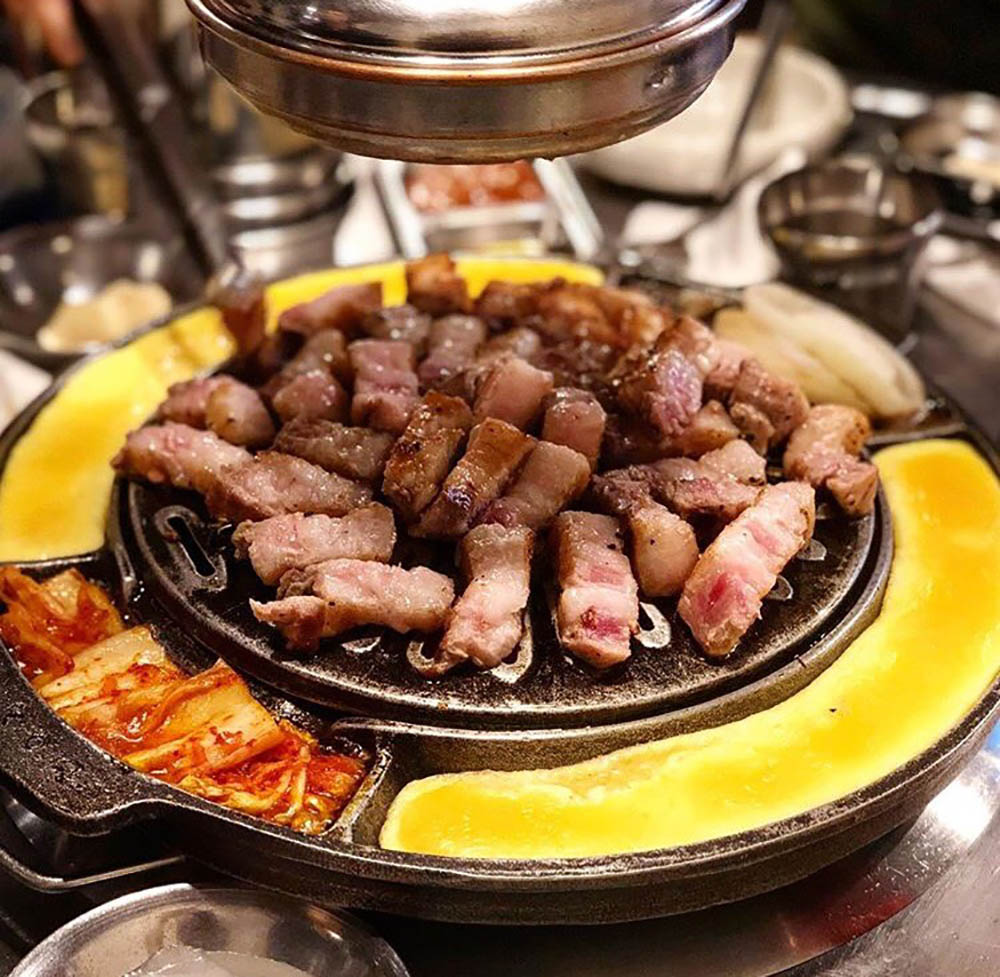By Kayla Toh
Two years ago, at her final press conference here on 23 September 2013, Aung San Suu Kyi mentioned that Burma could look to Singapore as a model.
“A lot of Burmese look to Singapore when they think of economic reforms in our country because they see the success of Singapore, and many of our young people are getting their education here so these are the sectors where many of our people feel they can learn from,” she said.
According to her, Burma can learn from Singapore’s successes, but should also go beyond workforce needs and material goals.
Citing education as an example, Aung San Suu Kyi said that Burma could learn from Singapore in terms of the standards it achieves, but not necessarily through its ‘workforce-oriented’ approach.
“I want to learn a lot from the standard Singapore has been able to achieve, but I wonder whether I don’t want something more for our country.”
“What is the purpose of the workforce? What is the purpose of work? What is the purpose of material wealth? Is that the ultimate aim of human beings? Is that all we all want?”
“So in a sense I think I want to put more into the success of Singapore, and to find out what we can achieve beyond that, because I think the human capacity for progress is limitless, and I am not just talking about material progress,” she said.
She added, “I think perhaps Singapore could learn from us a more relaxed way of life, perhaps warmer and closer family relationships. I think we have much to offer you, you come and find out.”
Netizens Respond to Aung San Suu Kyiís Comments
Aung San Suu Kyi’s speech on Singapore’s materialism spurred much discussion on local websites and forums.
One blogger by the name of Xuyun articulated that GDP alone does not define the spirit and the soul of a nation.
She wrote: “Aung San Suu Kyi simply pricked the bubble of our materialistic minds, exposing our emptiness beyond that magnificent façade which we built our self-esteem on and from which defines our success.”
“I may not guess what exactly Aung San Suu Kyi wants for her country. But it should be closer to the heart and further from the pockets.”
Bertha Henson, an ex-journalist for a local newspaper, agreed with Au San Suu Kyi’s comments in her blog, and said that it is time for Singapore to do some “furious thinking and soul searching”.
She wrote, “Maybe we’ve forgotten how to report on the softer, spiritual side of life. Or maybe the media is merely a mirror of society, reflecting what citizens care and talk about. Money.”
“Are we just a money-grubbing nation, efficiently churning out digits for the future workplace? Are we all about the Central Business District skyline? Is that really how other people see us? As calculative individuals who do not put much stock in human relationships?” she added.
The Real Singapore website published posts on Au Sang Suu Kyi’s remarks and drew many comments from netizens as well.
What is the purpose of work? What is the purpose of material wealth? Is that the ultimate aim of human beings? Is that all we all want?
Aung San Suu Kyi, Burma’s State Counsellor
Aye Naing, a student from a Burmese university, commented on The Real Singapore website: “I really appreciate her words. She is my hero. Life is a limited period in which we have to choose what we will survive for. It shouldn’t be just earning money to spend it for luxurious materials and endless investments………At least, we must know any value of having a life before we leave our belongings by ‘death’.”
Another Singaporean netizen by the name of Jerry Low commented: “I think everyone has their unique spiritual seeking quest (Spiritual/ Self Actualisation). The indicator is probably happiness. And I think the monetary system and authority is the one that is a hindrance to this on the majority.”
“We will have to be honest with ourselves on what is it that really makes us happy.”
Is Life All About Working?
So what is the purpose of life? Is it the pursuit of the material or the spiritual? What we do know is that in today’s society, the endless pursuit of material wealth has left us exhausted.
Undeniably, we can’t survive without money and a roof over our head. We have been taught to earn a better salary and live a better life. This is why we devote ourselves to
climbing the corporate ladder positions and working hard to achieve the 5Cs. Of course, there is nothing wrong with this, but there must be a limit to our greed as the desire for wealth and fame is akin to a black hole that can never be filled.
According to traditional Chinese belief, one has to value virtue in order to justify the material gains. Therefore, the person who pursues only fortune and neglects virtue will not enjoy sustained wealth. The traditional Chinese character for greed consists of two parts —“now” and “treasure”. This means that by collecting excessive wealth now, the person will pay the price at a later date.
Material life will bring us happiness, but that happiness is transient. Enriching our spiritual life, and being content with what we have, I believe, will give us unlimited joy and satisfaction.
If we have acquired all the wealth and fame in life, will we be truly happy? Have we ever pondered the importance of spiritual fulfilment; and our purpose in life?
Below is an inspirational story which will set you thinking:
Being Content
By Guan Ming| Soundofhope.org
I have many colleagues who have multitudinous pursuits. After buying a luxurious apartment, they start to covet a Mercedes car, despite the fact that their loans from the bank will require three decades to payback. Their desires are innumerable; in the end, they keep on telling everyone ‘money is not enough’ and life is very tired.
One just needs a bed to sleep at night and a decent meal to fill his stomach. If we possess countless hectare of lands and wealth, will we ever get to use them? Having enormous wealth does not equate to happiness. American writer Ralph Waldo Emerson said, “The poor are only they who feel poor,” and “Without a rich heart, wealth is an ugly beggar.”
Only when we learn to be contented and cherish what we have, can we distance ourselves from frustration and complaint; in turn finding inner peace and happiness.
In ancient China, a wood cutter was drinking spring water in the mountain when he stumbled upon glittering gold dust underneath the clear spring water. He was excited and carefully removed the gold sands. Since then, the bitter woodcutter no longer felt tired of his arduous job. He came every ten days to retrieve the gold dust and he gradually became rich.
The woodcutter was secretive about his discovery, but couldn’t hold on to his secret for long. One day, he told his son about it. His son immediately urged his father to excavate further and retrieve more gold dust. The father and son excavated the spring with special tools, but despite making the spring larger, the amount of gold dust did not increase. Instead, the gold dust disappeared without a trace.
This story tells us that when a person is too greedy, lady luck will no longer be smiling on them. If a person cannot convince himself from the heart, to cherish and be contented with what he has, even if he has exhausted his whole life, he cannot be a truly rich man.
Here’s another inspiration story that went viral. It is about a rich dad educating his son about the rich and the poor. But, ironically, the rich dad learns a wise lesson from his son in the end!
Rich Dad, Wise Son
One day, the father of an affluent family travelled with his son to the country. The father wanted to show his son how the poor people live.
They stayed in a poor farmer’s house for a couple of days and nights.
When the trip ended, the father asked his son, “How was the trip? Did you see how poor people live?”
“It was great, Dad. I noticed that we have one dog and they have four. We own a pool in the middle of our garden but they have a creek that reaches no end.”
“We have lamps in our garden but their home is scattered with countless glittering stars over their head.”
“Our patio extends only to the front yard but they have the whole horizon.”
“We have walls around our house and only a small piece of land to live on, but they possess boundless fields that gone beyond one’s sight.”
Without a rich heart, wealth is an ugly beggar.
American writer Ralph Waldo Emerson
“Thanks Dad for showing me how poor we are,” his son said.
Hearing this, the rich father was at a loss for words.
It might seem profound, but have we thought deeply about the meaning of life?
An Ancient Chinese Parable
Clearwisdom.net
Lu Dongbin is a well-known character of Chinese legends who became an immortal by cultivating himself.
In one legend, Lu transformed himself into a street vendor. He set up a table to sell dumplings and put up a sign, “One coin for one dumpling and two coins to eat as many as you can.” He hoped that, with this strategy, he would find an honest person whom he could accept as a disciple.
Many people came up to the table to buy dumplings, but all of them paid two coins and ate their fill. Finally, a young man came, paid one coin for one dumpling, and started to leave. Lu asked him why he only paid one coin for one dumpling instead of two and eating as much as he could. The young man replied, “Well, I only had one coin. Otherwise, I would have paid two.” Lu Dongbin was very disappointed. Unfortunately, he never found anyone suitable to be his disciple.
This story inspires us to think about how most people busy themselves day after day, wihout stopping to consider their true purpose in life.
Motivated by desire for fortune and fame, a person usually thinks of his or her self-interest and acts to satisfy it.
In the above example, those who visited the street vendor perhaps thought they had made a smart decision. What they did not realise was that they lost the precious opportunity to learn from an immortal and ascend to a better future.
Most people tend to keep busy day after day rather than think too deeply about the meaning or purpose of life.

Having enormous wealth does not equate to happiness.
We conclude this thought-provoking topic with the classic poem, ‘All Good Things Must End’ from A Dream of Red Mansions by Cao Xueqin. A Dream of Red Mansions is one of China’s Four Great Classical Novels, and it was written in the 18th century during the Qing Dynasty.
All Good Things Must End (好了歌)
By Cao Xueqin | A Dream of Red Mansions
世人都晓神仙好,只有功名忘不了!
古今将相在何方?荒冢一堆草没了!
世人都晓神仙好,只有金银忘不了!
终朝只恨聚无多,及到多时眼闭了!
世人都晓神仙好,只有姣妻忘不了!
君生日日说恩情,君死又随人去了!
世人都晓神仙好,只有儿孙忘不了!
痴心父母古来多,孝顺儿孙谁见了?
All men long to be immortals,
Yet to riches and rank each aspires;
The great ones of old, where are they now?
Their graves are a mass of briars.
All men long to be immortals,
Yet silver and gold they prize;
And grub for money all their lives,
Till death seals up their eyes.
All men long to be immortals,
Yet dote on the wives they’ve wed;
Who swear to love their husband evermore,
But remarry as soon as he’s dead.
All men long to be immortals,
Yet with getting sons won’t have done;
Although fond parents are plentiful,
Who ever saw a really filial son?
















